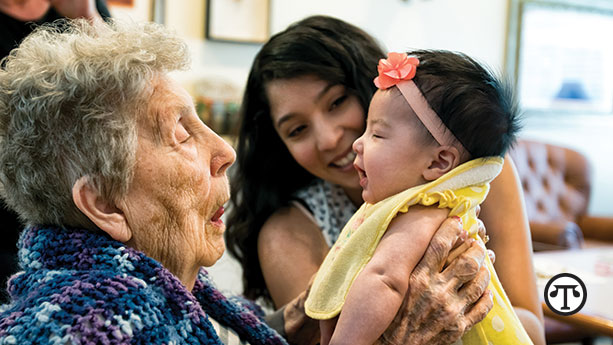
(NAPSI)—Millions of unpaid, family caregivers may be putting their own long-term health and financial security at risk when providing support for relatives or friends who need help taking care of themselves. Research from nonprofit Transamerica Institute® finds that 69 percent of caregivers gave little or no consideration to their own financial situation when deciding to become a caregiver, and 55 percent say their own health takes a back seat to that of the person they are caring for.
“Caregivers play a vital role in our society. It is imperative that we raise awareness of the issues and risks they face and offer meaningful solutions that can help them better manage their responsibilities,” said Catherine Collinson, CEO and president of Transamerica Institute. If you are among the growing number of family caregivers, these eight tips can help you maintain your own well-being while caring for your loved one.
- Take care of your own health and wellness. Your physical health is important, too. Eating well, getting enough sleep, exercising, and taking breaks can all help increase your energy, reduce stress and improve your mood. Remember your own medical checkups and let your doctors know of any changes to your health.
- Share caregiving and non-caregiving responsibilities. Share caregiving with family members and friends, or seek out community resources, such as adult day programs or transportation services. Ask for help with your own day-to-day responsibilities that caregiving makes difficult; it may be easier to find help with those activities than with caregiving.
- If employed, strive to stay in the workforce while caregiving. Consider all your options before reducing hours, job responsibilities or quitting your job. Taking time out of the workforce could make it difficult to return to work and to find a job at the same level of pay.
- Ask if your employer offers programs or benefits to help caregivers. Many employers offer the ability to work remotely, flexible hours and compressed workweeks, which can make it easier to juggle work and caregiving. Ask if your employer offers an Employee Assistance Program (EAP), which may include referrals to services for caregivers and care recipients.
- Learn about the Family and Medical Leave Act (FMLA), a federal law that requires covered employers to provide their eligible employees with protected, unpaid work leave for qualified medical and family reasons. It can help employees balance their job with caring for a family member with a serious health condition. To learn more about FMLA and whether you are eligible, visit dol.gov/whd/fmla, and consider consulting your employer’s HR department.
- Keep your own long-term financial security top of mind. As a caregiver, it is especially important to budget, keep track of expenses and save for the future. Save for retirement either through your employer’s 401(k) or similar plan, or in an IRA. Avoid taking loans or early withdrawals from those accounts.
- Explore programs that provide financial assistance to caregivers. Some states have programs for Medicaid recipients to help pay nonprofessional caregivers, such as Cash & Counseling and In-Home Supportive Services (IHSS). Veterans may be eligible for the Veterans Directed Home and Community Based Services (VD-HCBS) program. If the care recipient has a long-term care insurance policy, find out if it enables you to receive payments and what requirements or certifications you would need to receive payments. You may also be able to claim the care recipient as a dependent for tax purposes.
- Remember patience. Caregiving takes patience, both in being realistic about what you as the caregiver can do, and in communicating with and assisting the care recipient. Relationships often change when the need for caregiving arises-from adult children reversing roles with their aging parents, to shifts in roles between spouses or partners. Patience is even more important when the care recipient has any cognitive decline.
Additional tips and resources can be found in nonprofit Transamerica Institute’s “Comprehensive Guide for Caregivers.” This free guidebook provides tools for assessing when care is needed, suggestions for planning for care and navigating health insurance coverage, possible options for financial support for caregivers, and ways to care for the caregiver. It can be downloaded at www.transamericainstitute.org/caregivers-research.
Transamerica Institute conducted the survey of more than 3,000 nonprofessional caregivers in 2017. Full survey results and additional materials are available at www.transamericainstitute.org/caregivers-research. Transamerica Institute is a nonprofit, private foundation.
“Tips and resources for caregivers can be found in nonprofit Transamerica Institute’s free “Comprehensive Guide for Caregivers.” It provides tools for navigating health insurance coverage and possible options for financial support for caregivers. http://bit.ly/2RbzH9q”
